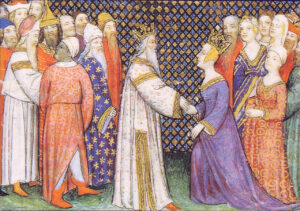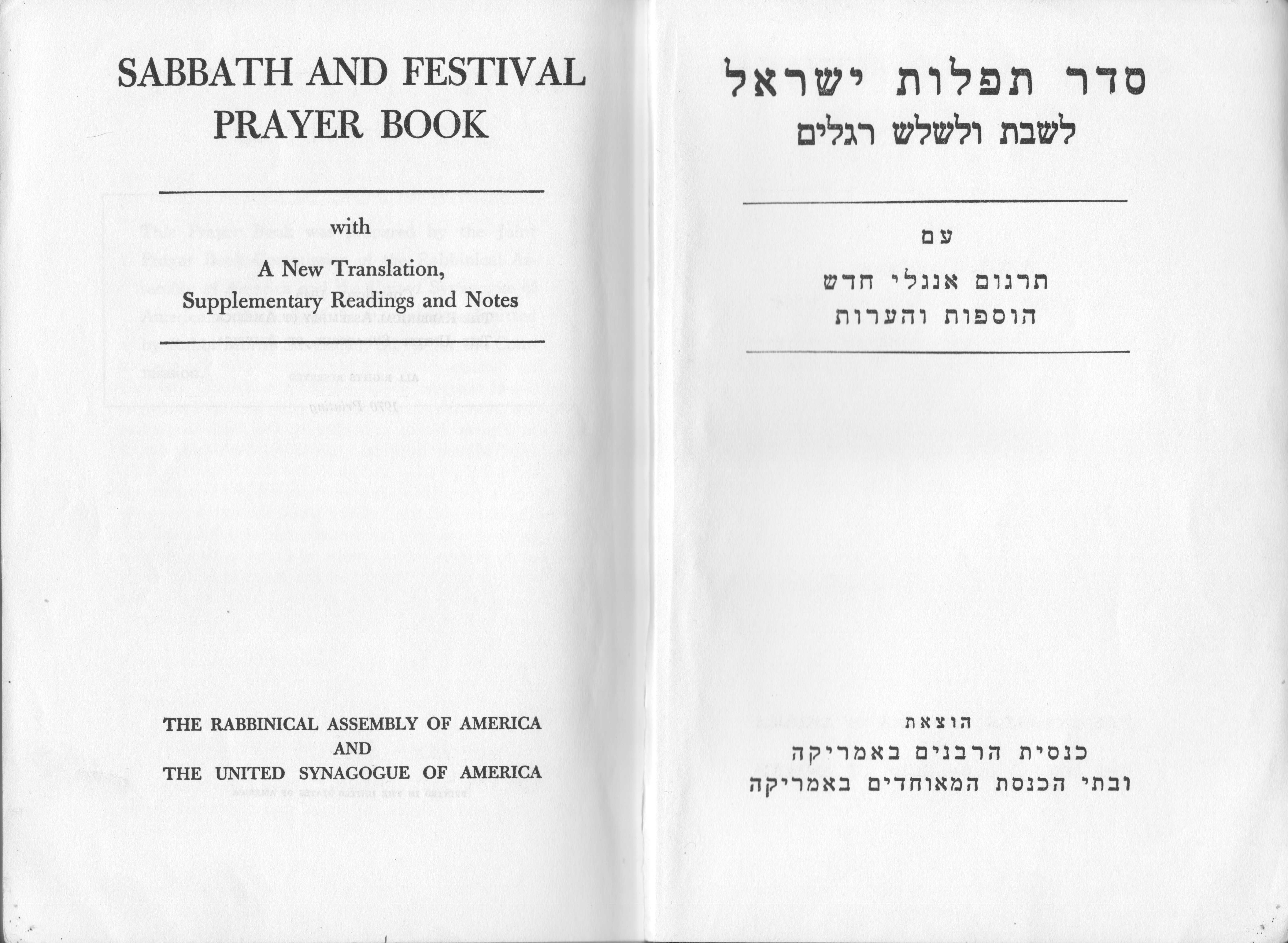Contributor(s): Shared on: 31 March 2025 under the Creative Commons Zero (CC 0) Universal license a Public Domain dedication Categories: Tags: | Source (Hebrew) | Translation (English) |
|---|
בָּרוּךְ אַתָּה
יְיָ אֱלֹהֵֽינוּ
מֶֽלֶךְ הָעוֹלָם
שֶׁעָשַֽׂנִי בְּצָלְמוֹ׃ |
Blessed art Thou
O Lord our God
King of the universe
who hast made me in Thine image. |
בָּרוּךְ אַתָּה
יְיָ אֱלֹהֵֽינוּ
מֶֽלֶךְ הָעוֹלָם
שֶׁעָשַֽׂנִי בֶּן חוֹרִין׃ |
Blessed art Thou
O Lord our God
King of the universe
who hast made me free. |
בָּרוּךְ אַתָּה
יְיָ אֱלֹהֵֽינוּ
מֶֽלֶךְ הָעוֹלָם
שֶׁעָשַֽׂנִי יִשְׂרָאֵל׃ |
Blessed art Thou
O Lord our God
King of the universe
who hast made me an Israelite. |
This formulation of the Berakhot she’Asani (“blessings that made me”) in the Birkhot haShaḥar was first published in the Sabbath and Festival Prayer Book (United Synagogue of America 1946). The blessings are based on the traditional liturgy derived from Rebbe Yehudah’s statement in Tosefta Berakhot 6.23 and Rebbe Meir’s statement in Menachot.43b.17. Source(s)
Aharon Varady (M.A.J.Ed./JTSA Davidson) is a volunteer transcriber for the Open Siddur Project. If you find any mistakes in his transcriptions, please let him know. Shgiyot mi yavin; Ministarot naqeni שְׁגִיאוֹת מִי־יָבִין; מִנִּסְתָּרוֹת נַקֵּנִי "Who can know all one's flaws? From hidden errors, correct me" (Psalms 19:13). If you'd like to directly support his work, please consider donating via his Patreon account. (Varady also translates prayers and contributes his own original work besides serving as the primary shammes of the Open Siddur Project and its website, opensiddur.org.) Rabbi Morris Silverman (1894–1972) was a Conservative rabbi as well as an editor and writer of Jewish prayer books. In 1939, he edited the High Holiday Prayer Book, popularly known as the "Silverman Machzor" which became the official prayer book for Rosh Hashanah and Yom Kippur for the United Synagogue of America of the Conservative Movement for over half a century.Likewise, his manuscript for a siddur became the basis of the Sabbath and Festival Prayer Book (Seder Tefilot Yisrael), the official prayer book for the Conservative movement. Silverman served as rabbi for The Emanuel Synagogue in West Hartford, Connecticut. Robert Gordis (1908 – 1992) was an American leading Conservative rabbi. He founded the first Conservative Jewish day school, served as President of the Rabbinical Assembly and the Synagogue Council of America, and was a professor at Jewish Theological Seminary of America from 1940 to 1992.
He wrote one of the first pamphlets explaining Conservative ideology in 1946, and in 1988 he chaired the Commission on the Philosophy of Conservative Judaism which produced the official statement of Conservative ideology "Emet Ve-Emunah". Gordis was the founding editor in 1951 of the quarterly journal Judaism. The United Synagogue of America was founded in 1913 as the association of Conservative synagogues in North America. It was organized by Rabbi Dr. Solomon Schechter, a Talmudic scholar and spokesman for the Conservative movement. Today, as the United Synagogue of Conservative Judaism, it serves as a resource to its 650 affiliated congregations across North America, helping them to enrich the Jewish lives of their members and fulfilling religious, educational and communal responsibilities. The organization contains administrative divisions for youth activities, Jewish education, adult studies, music, social action, dietary laws, and congregational standards. It is affiliated with the National Federation of Jewish Men’s Clubs, The Rabbinical Assembly, and the Women’s League for Conservative Judaism.  The Rabbinical Assembly (RA) is the international association of Conservative rabbis. The RA was founded in 1901 to shape the ideology, programs, and practices of the Conservative movement. It publishes prayerbooks and books of Jewish interest, and oversees the work of the Committee on Jewish Law and Standards for the Conservative movement. It organizes conferences and coordinates the Joint Placement Commission of the Conservative movement. Members of the RA serve as rabbis, educators, community workers and military and hospital chaplains around the world. Rabbis ordained by Jewish Theological Seminary of America, the Ziegler School of Rabbinic Studies at the American Jewish University (California), The Seminario Rabínico Latinoamericano (Buenos Aires, Argentina), The Zacharias Frankel College (Berlin, Germany) and The Schechter Rabbinical Seminary (Jerusalem, Israel) automatically become members of the RA upon their ordination. Rabbis whose ordination is from other seminaries and yeshivas may also be admitted to the RA. As of 2010, there were 1,648 members of the RA. The majority of RA members serve in the United States and Canada, while more than ten percent of its rabbis serve in Israel and many of its rabbis serve in Latin America, in the countries of Europe, Australia, and Africa. Read a comment / Leave a comment (moderated) Works of related interest: |










Leave a Reply